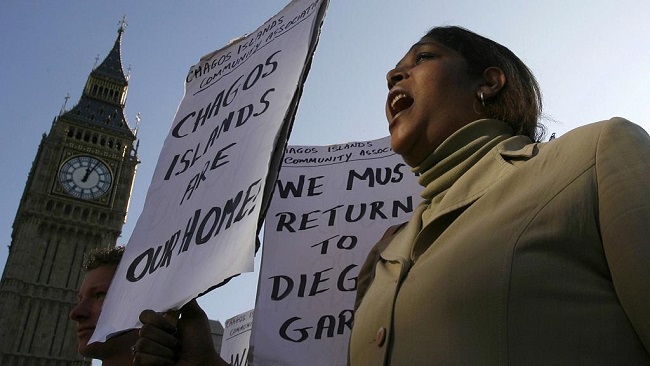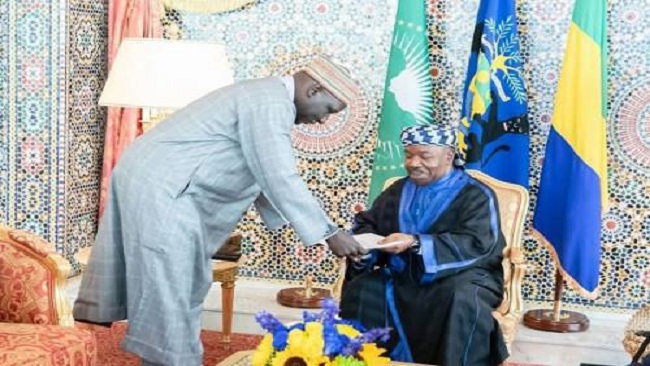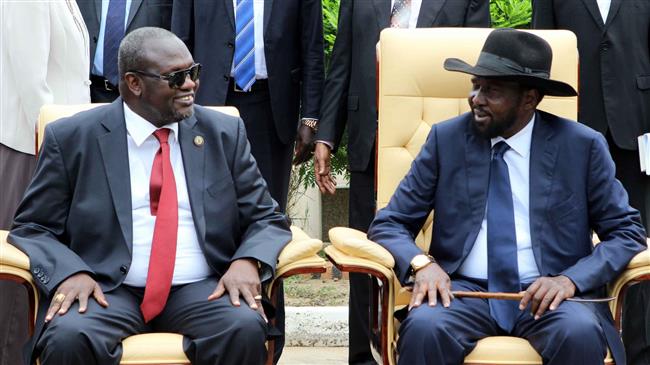23, November 2019
France-Afrique: African Union orders Britain to end ‘colonial administration’ of Chagos Islands 0
Following a United Nations deadline for Britain to withdraw from th Chagos Islands, the African Union ordered Britain on Friday to end its “continued colonial administration” of the disputed Indian Ocean territory.
The Chagos Islands belong to the Indian Ocean island nation of Mauritius, according to the advisory opinion the top U.N. court issued in February. The U.N. General Assembly in May voted in favour of Britain returning the islands to Mauritius and set a deadline for Nov. 22.
In a statement the African Union called on Britain to comply with the U.N. resolution.
Britain does not recognise Mauritius’ sovereignty claim.
“The UK has no doubt as to our sovereignty over the British Indian Ocean Territory (BIOT), which has been under continuous British sovereignty since 1814,” the Foreign Office said in a statement on Nov. 5.
Mauritius Prime Minister Pravind Kumar Jugnauth called Britain’s refusal to give up control of the islands a violation of international law.
“The United Kingdom cannot profess to be a champion of the rule of law and human rights whilst maintaining an illegal colonial administration,” he told parliament on Thursday.
The only inhabited island of the Indian Ocean archipelago is home to the Diego Garcia U.S. military base, rented out by Britain and a bomber base for the Air Force.
REUTERS





























30, November 2019
Gabon’s Operation Mamba: an anti-corruption drive or political witch-hunt? 0
Authorities in Gabon this week arrested eight people who are suspected of theft and money-laundering in what is seen as follow-up to Operation Mamba, an anti-corruption campaign launched in 2017 by President Ali Bongo, who has been battling serious illness.
The revived anti-graft drive has seen a string of top-level arrests in the central African country, as accusations that millions of euros have disappeared from state coffers swirl around top officials.
“Eight people have been placed in preventive detention,” Gabon’s prosecutor Andre Patrick Roponat said on Thursday, adding that they were accused of “siphoning off public funds and money-laundering.”
The group appeared before a judge on Wednesday along with eight others who were released on bail, Roponat said.
Pro-government newspaper L’Union reported this week that more than 85 billion CFA francs ($142 million) have “evaporated” over the past two years from the funds of the Gabon Oil Company.
60-year-old Bongo said last month he was “fiercely determined” to push ahead with the campaign against graft.
Political witch-hunt?
One high-profile political figure embroiled in the affair is Brice Laccruche Alihanga, Bongo’s former cabinet director who took the lead and spoke for the president after he suffered a stroke in 2018.
Laccuruche had held his cabinet post for more than two years but was dismissed on November 7, at the start of a wave of arrests.
He has announced on social media that he will undertake a new mission for “the president and for Gabon”.
Earlier this week, lawyers told AFP that presidential spokesman Ike Ngouoni and a dozen others were arrested and questioned over their ties to Alihanga.
The lawyers also insist that “there is a political vendetta” in the current process, a claim the country’s Prime Minister refutes.
During his months-long absence abroad for treatment, speculation over Bongo’s fitness surged and the army quashed a brief attempted coup.
Bongo has ruled Gabon since 2009, following the death of his father Omar Bongo, who was in power from 1967.
AFP